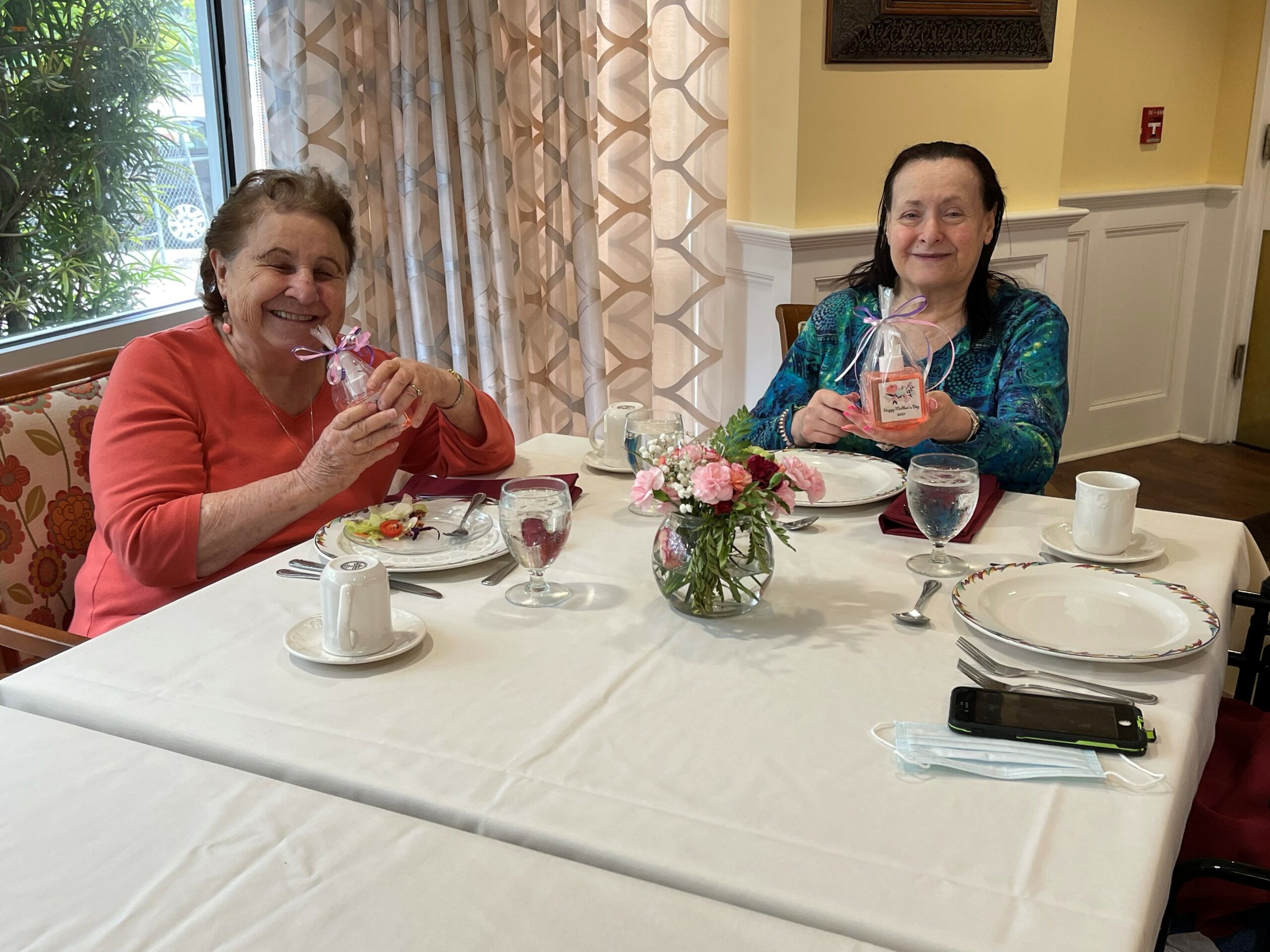As nursing home residents age and decline, they may gradually lose the ability to communicate. Sadly, this is often a time when families stop visiting because they don’t know what to say or how to make the visits meaningful.Planning can make a big difference. Use the tips below to make your visits enjoyable to you and your loved one.
- First, know your loved one’s schedule, including when they have their meals, therapy sessions, favorite activity or naps.
- Then, talk to the senior living facility staff. They will not only help select a time when your loved one is the least fatigued, but can also educate you on what to expect, and suggest things to do and how to make the most of your visit together.
- Next, stay in touch with your family and develop a recurring visits schedule, so you don’t overlap. That way you can maximize the number of visits and not overwhelm your loved one with too many visitors.
- Prepare for the visit ahead of time. Bring items of interest or things to do together to keep the conversation going, such as:
- Old family photos to reminisce. Your loved one may enjoy just listening to your memories, or it may spark a memory.
- Recent family photos or videos to watch together on a tablet.
- A book of their favorite author to read during your visit.
- A local community paper or newsletter to read what is happening in their neighborhood, club or congregation.
- Games they enjoy that you can play together.
- Depending on your loved one’s mobility and health, plan to take them for a walk or a ride to a place they may enjoy, such as a botanical garden.
- Bring children or pets. Young children can bring amazing joy to older adults. Ask the senior living community ahead of time if pets are allowed, and, if your loved one enjoys animals, see if they could spend time together.
- Adjust your communication style to accommodate your loved one’s limitations.
- Don’t ask too many “yes” or “no” questions, as it may be stressful if your loved one is unsure of the answer and can make it difficult to keep a conversation going.
- Do not correct them unless necessary. A medical condition such as dementia may cause your loved one to say things that seem irrational or inaccurate. Remember, it’s more important to focus on listening and spending time together than correcting facts.
- Connect through human touch but keep individual preferences in mind. While one person may love a back rub, others may prefer having their hand held or arm stroked.
- Finally, don’t make a big production about leaving. Say goodbye and let them know you will see them soon, just as you would to any other family member.
While the above tips are meant to help you plan and make your next nursing home visit more meaningful, remember to keep it simple for both you and your loved one. Don’t overburden yourself with excessive planning or expectations that every visit must be a memory-maker. The visit should create an environment for peace and joy for both of you. Like to schedule a visit? Contact us today.

